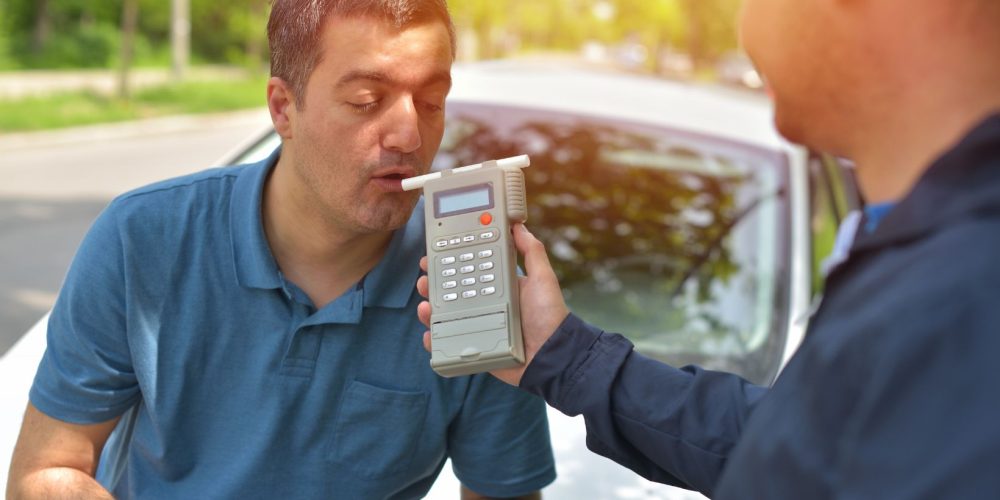As a Driver if You Refuse a Test to Determine Alcohol
The Importance of Alcohol Testing For Drivers
As a driver, it is crucial to understand the significance of alcohol testing and the consequences of refusing a test to determine alcohol levels.
Impaired driving is a serious offense that puts not only the driver’s life at risk but also the lives of other road users. Alcohol testing plays a vital role in ensuring road safety and identifying individuals who may be under the influence of alcohol while operating a vehicle.
Here are a few reasons why alcohol testing is important for drivers and the roadways:
- Deterrence: Alcohol testing acts as a deterrent to potential drunk drivers. Knowing that they can be subjected to a test at any time encourages drivers to think twice before getting behind the wheel after consuming alcohol.
- Identification: Alcohol testing helps to identify drivers who are operating vehicles under the influence. This allows law enforcement officials to take the necessary actions, such as issuing citations, imposing penalties, and initiating legal proceedings.
- Prevention of Accidents: Driving under the influence of alcohol significantly impairs a driver’s judgment, coordination, and reaction time. By testing alcohol levels, authorities can identify and remove intoxicated drivers from the road, thereby preventing accidents and safeguarding lives.
- Promotion of Accountability: Alcohol testing promotes accountability among drivers by providing objective evidence of their sobriety. It also helps in establishing legal and actionable proof in the event of accidents or other alcohol-related incidents.
- Support for Rehabilitation Programs: For individuals who are struggling with alcohol addiction or dependency, alcohol testing can play a vital role in their rehabilitation process. Positive tests can lead to mandated enrollment in treatment programs, helping individuals overcome their addiction and develop healthier habits.
- Insurance and Legal Considerations: Many insurance policies and legal arrangements require alcohol testing as a part of accident investigations, claims settlements, or even in the event of disputes related to driving under the influence.
Understanding The Consequences of Refusing a Test
Legal Ramifications of Refusing an Alcohol Test
Refusing to take an alcohol test can lead to various legal consequences. While specific laws vary by jurisdiction, here are some common legal ramifications:
- License Suspension: Refusing a test may result in an immediate suspension of your driver’s license. This suspension can be for a specific period, often longer than if you had opted to take the test and failed.
- Legal Consequences: Refusing a test doesn’t guarantee that you won’t face charges related to drunk driving. Authorities may still pursue legal actions based on other evidence or observations at the time of the stop.
- Enhanced Penalties: In some jurisdictions, refusing a test can lead to enhanced penalties if you are later convicted of driving under the influence (DUI). These penalties could include longer license suspensions, higher fines, mandatory alcohol education programs, or even jail time.
Administrative Penalties For Refusing a Test
In addition to legal consequences, refusing an alcohol test can also result in administrative penalties. These penalties are typically associated with the administrative process of your driver’s license, and they may include:
- Automatic Suspension: Many states have “implied consent” laws, which state that by obtaining a driver’s license, you consent to a chemical test if suspected of driving under the influence. Refusing this test can trigger an automatic suspension of your license, regardless of whether you were actually intoxicated or not.
- Ignition Interlock Requirements: Some jurisdictions may require drivers who refuse a test to install an ignition interlock device (IID) in their vehicles. An IID measures alcohol in your system and prevents the engine from starting if a certain level is detected.
- Higher Insurance Premiums: Refusing an alcohol test can also have an impact on your auto insurance rates. Insurance companies may view the refusal as an indication of potential drunk driving behavior, resulting in higher premiums.

Your Rights And Responsibilities as a Driver
Right to Legal Representation
As a driver, it is important to understand your rights when it comes to alcohol testing. If you refuse a test to determine alcohol, you have the right to seek legal representation. Consulting with a lawyer can help you understand the potential consequences and navigate the legal process.
Understanding Implied Consent Laws
In many jurisdictions, there are implied consent laws in place. This means that as a driver, you have already given consent to alcohol testing simply by being on the road. Refusing a test can have serious legal and administrative ramifications.
Responsible Decision Making
When faced with the decision to take an alcohol test or refuse, it is crucial to make responsible choices. Refusing a test may seem like a way to avoid legal consequences, but it can result in severe penalties. It’s important to weigh the potential consequences and prioritize road safety.
By understanding your rights and responsibilities as a driver, you can make informed decisions when it comes to alcohol testing. Seeking legal representation, being aware of implied consent laws, and making responsible choices will help ensure the safety of yourself and others on the road.
Conclusion
Understanding the importance of alcohol testing as a driver is crucial for ensuring road safety. By being aware of our rights and responsibilities, we can make informed decisions and prioritize the well-being of ourselves and others on the road. Ultimately, the decision to refuse or comply with an alcohol test lies in our hands. It is crucial to make responsible choices and prioritize the safety of ourselves and others on the road. By doing so, we contribute to creating a safer driving environment for everyone.





